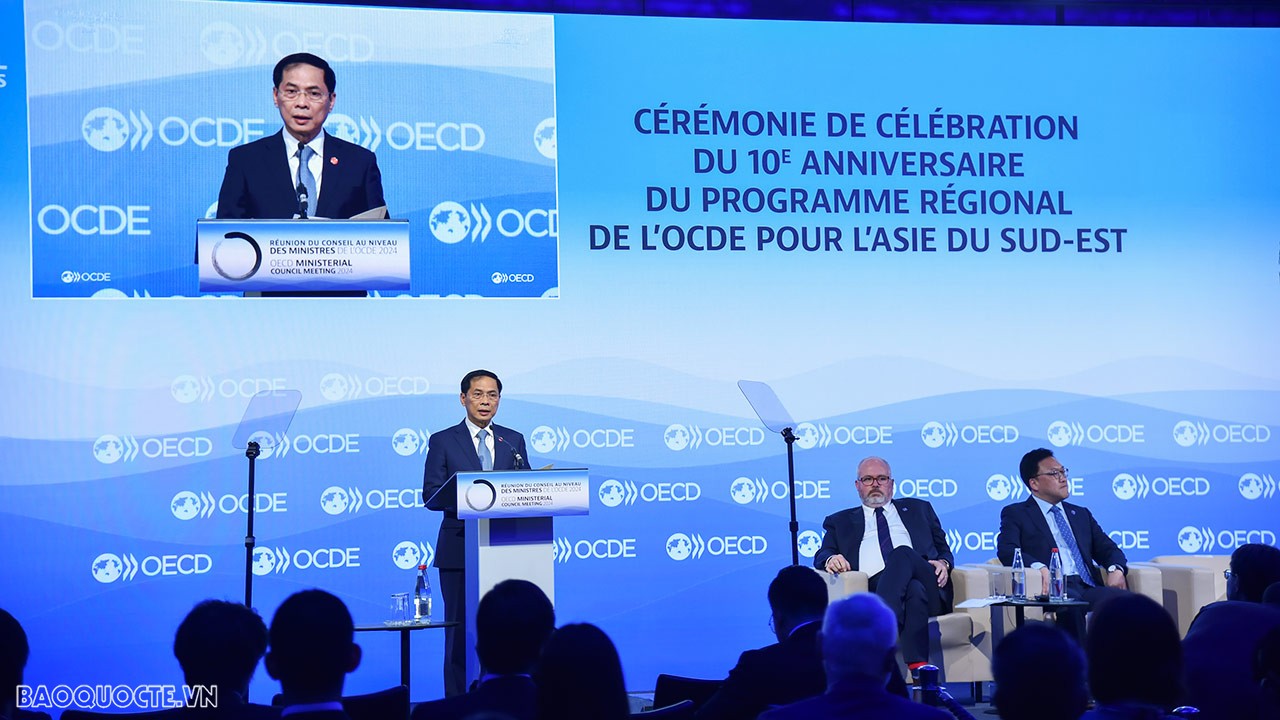
Minister of Foreign Affairs Bui Thanh Son speaks at the commemoration ceremony marking the 10th anniversary of the OECD Southeast Asia Regional Programme (SEARP) - a highlight of the OECD’s Ministerial Council Meeting in Paris on May 2 and 3. (Photo: VNA)
In his remarks, he stressed that Vietnam does not pursue growth at all costs and always places human beings at the centre as the subject and objective of development.
Son proposed that the OECD take the lead in promoting global cooperation, specifically in building a global innovative ecosystem that effectively harnesses the dual trends of green transition and digital transformation, with a focus on innovation, AI, and just energy transition.
He added that it is necessary to establish mechanisms for experiences sharing and capacity building to help countries maximise human potential, unleash growth drivers, and foster inclusive prosperity, while encouraging OECD countries to provide financial, technical, and technological support for non-OECD ones’ implementation of strategic breakthroughs, particularly in human resources, infrastructure, and institutions.
The Vietnamese FM, in his capacity as the co-chair of the OECD Southeast Asia Regional Programme (SEARP) for 2022-2025, also addressed a commemoration ceremony marking its 10th anniversary, which was a highlight within the framework of the ministerial council meeting.
Son praised Japan's foresight in initiating the establishment of SEARP, which has become the most successful regional programme of the OECD in the past decade. With their strategically important geographic position and dynamic economies, Southeast Asian countries will play an increasingly crucial role in contributing to global growth and addressing development challenges.
The FM proposed that in the next decade, the programme should further enhance its role as a bridge for deeper and more substantive engagement of Southeast Asian countries in global governance processes, particularly in such areas as green transition, tax cooperation, and AI. As a result the region will become a destination for high-quality investment flows, and promote reform efforts towards high governance standards, environmental friendliness, and social harmony.
Within the framework of the meeting, the Vietnamese delegation also participated in several other important activities, including a ministerial dialogue of the Inclusive Forum on Carbon Mitigation Approaches (IFCMA) and an event discussing safe, secure, and trustworthy AI governance.
Established in 1960, the OECD currently comprises 38 members, primarily being developed countries. Its objective is to enhance economic cooperation and policy coordination among member countries on economic and development issues.
Since 2007, the OECD has significantly promoted cooperation with Southeast Asia, considering the region a strategic priority.

Comment
Print